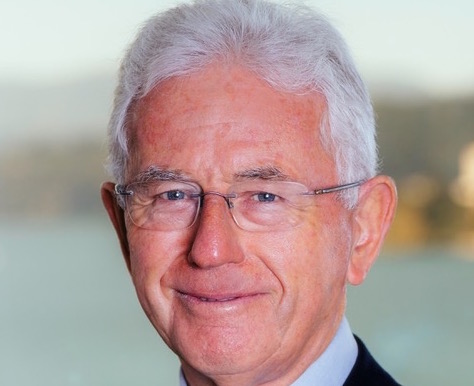News
27 August 2018
5 financial mistakes to avoid before you retire
The outcome of financial decisions made in your 20s and 30s begins to appear from your 40s, then continues to unfold in the years that follow. Despite the decisions you did (or didn’t!) make in your younger years, you can still avoid a number of mistakes in the lead up to your retirement.
1. Failure to plan
Regardless of whether you started planning for retirement in your 20s and 30s, failure to participate in any kind of financial planning is a sure-fire way to struggle later in life. If you don’t plan, you immediately restrict what your retirement has the potential to be – planning can be the difference between sipping cocktails on beaches all over the world by age 65 or having to work well into your 70s.
For many couples, failing to plan includes not considering what to do once the mortgage on the family home is repaid. A common issue our financial advisers see is people who’ve diligently spent years paying off their mortgage, then once it’s repaid, they don’t dedicate the mortgage repayments they’re accustomed to living without into investments for their retirement. Instead of investing it, this new-found surplus is then wasted on unnecessary spending until it’s too late. The simple fix for this is to have a financial plan and stick to it!
2. Financially supporting adult children
Assisting adult children with living expenses makes sense when the children seize the opportunity to save money on day-to-day costs and direct it towards standing on their own two feet one day. Unfortunately, it’s all too common that adult children use this situation as an opportunity to make the most of spending their extra discretionary income, and continually avoid monetary responsibility. Nowadays, it’s not uncommon for those well in their late twenties to still be living in the parental home, eating Mum’s cooking, and living from pay cheque to pay cheque. This results in their parents being under unnecessary financial pressure and is another factor that can delay retirement.
Teaching children about financial matters early in life will help to minimise the pressure put on the parents when those children become adults. Some parents who have adult children living at home may also benefit from practicing a little ‘tough love’ and having some open discussions about when it’s time for the adult children to leave the nest.

3. Inadequate protection
It’s natural to think that the worst won’t happen to you – catastrophic events such as a terminal illness diagnosis, or an early death are things that happen to other people, right? Wrong – as an example, in New Zealand alone, more than 23,000 people are diagnosed with cancer every year. As you age your health declines, and so your risk goes up. Without adequate protection in place, you leave yourself and your loved ones at risk of financial ruin. Having protection in place for events like this is paramount. This could be in the form of a large contingency fund and/or insurances such as health and income protection insurance.
4. Lack of diversification
Diversification is the first principle of investing, and all too often we see people with most of their wealth in one class (or type) of assets. This means that all their investment eggs are in one basket, and places them at risk of that one asset class experiencing a downturn or drop in value.
In New Zealand, this is most commonly the case with property, as many people in their 40s, 50s, and 60s are property investors who have successfully enjoyed year after year of residential property price increases. Unfortunately, past performance doesn’t guarantee future returns, and holding most of your wealth in property can expose people to risks such as earthquakes or other natural disasters and a housing market downturn. Even worse, opportunities are being missed as there are simple and efficient ways to more evenly spread risk across different assets and across the globe.
5. Holding savings in a bank account and/or term deposits without good reason
Cash held in savings accounts or term deposits is a great idea to protect against emergencies or when sums are needed within the next year or two. Holding cash for any longer is widely accepted as being unwise for your long-term financial well-being, as opportunities to invest and grow your wealth are missed. For those nearing retirement, or already retired, holding too much in savings accounts and terms deposits won’t make the funds last as long as other investments. Worse still, term deposits and savings accounts aren’t guaranteed by the government anymore, so your funds probably aren’t even as safe as you think.
The bottom line
Ultimately, what you do in the lead up to retirement determines how you spend it. This is best achieved by avoiding the financial mistakes of:
1. Failure to plan
2. Financially supporting adult children
3. Inadequate protection
4. Lack of diversification
5. Holding savings in a bank account and/or term deposits without good reason

Diversification - The first principle of investing
This article has been contributed by Joseph Darby, CEO and authorised financial adviser at Milestone Direct Ltd. This article first appeared on the Milestone Direct website. The views and opinion expressed in this article are those of Joseph Darby and not necessarily those of Milestone Direct Ltd. The views and opinions expressed in this article are intended to be of a general nature and do not constitute a personalised advice for an individual client. A disclosure statement relating to Joseph Darby is available, on request and free of charge.
Have you got your $1,000 retirement Kickstart?
Kickstart your retirement with up to $1,000 for new applications received by 21 December and settled by 28 February.
Only a limited number of Kickstarts are available so please be in quick!

SIr Michael Cullen is a Director of Lifetime Income